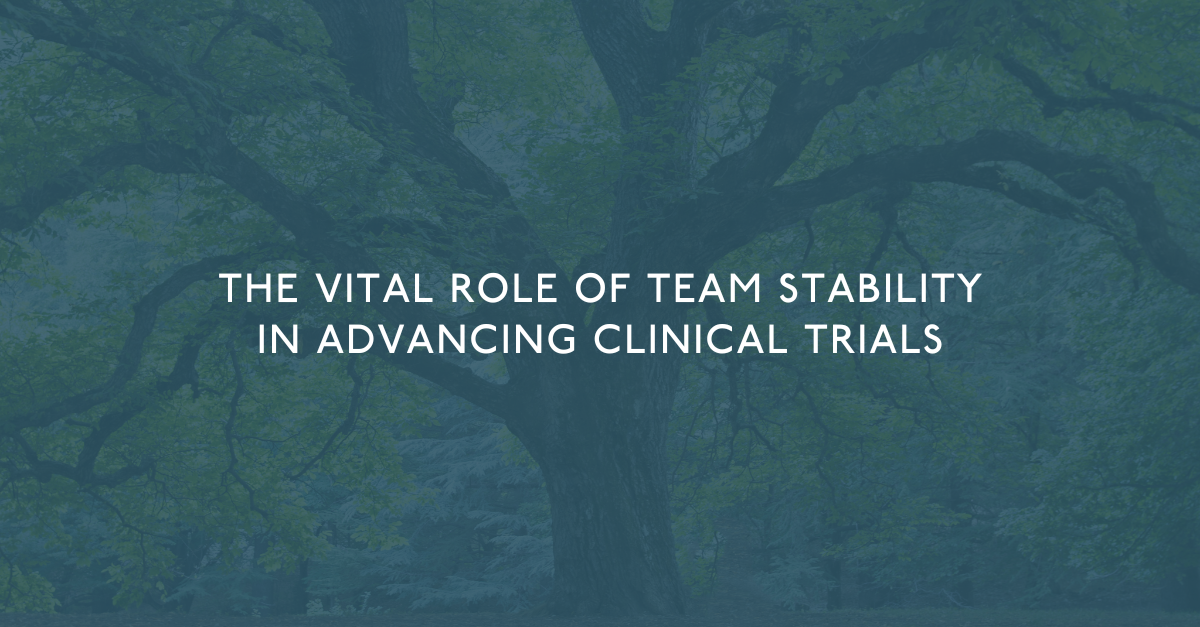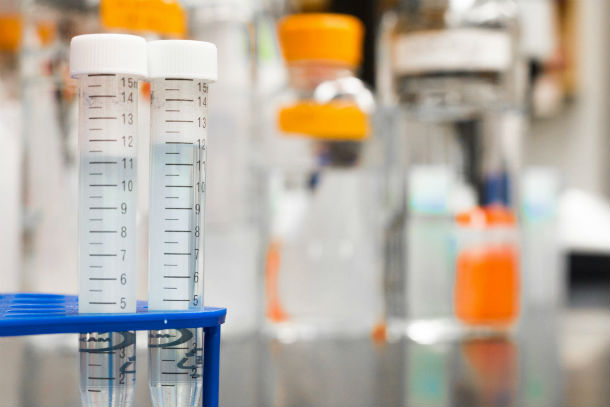The Vital Role of Team Stability in Advancing Clinical Trials
March 29, 2024In the fast-paced world of clinical research, turnover rates are high and project continuity can be a challenge. However, at Atlantic Research Group (ARG) stability is guaranteed. With a company-wide turnover rate of just 6%, compared to an industry standard of over 33%, our commitment to team stability is not only impressive but also crucial for the success of the studies we conduct, particularly within the oncology sector. Let's uncover how team stability benefits clinical trials across various fronts.
REDUCED TRAINING TIME AND COST
One of the most tangible benefits of maintaining a stable team throughout a clinical trial is the significant reduction in training time and associated costs. Every new team member brought on board needs both time and resources to get them up to speed with the intricacies of the trial protocol, procedures, and regulatory requirements. However, with a consistent team in place, trial operations proceed without disruption, and the need for repetitive training sessions is minimized, ultimately saving valuable time and financial resources.
At ARG, our emphasis on team consistency throughout the entire product development lifecycle is one of the key factors contributing to our low turnover rate. Once a team is assigned to a study, they stay with it, as well as its follow-on studies, ensuring consistency and expertise are maintained. This continuity fosters better relationships with study sites, enhances efficiency, and enables the team to develop therapeutic-specific experience, which is invaluable in oncology research.
SITE MANAGEMENT EXCELLENCE
Central to the success of any clinical trial is effective site management where Clinical Research Associates (CRAs) play a pivotal role. A stable team of CRAs fosters the development of strong and enduring relationships with site staff, establishing trust that is invaluable in ensuring smooth trial execution. Acting as the single point of contact for site staff, CRAs streamline communication channels, facilitate efficient problem-solving, and bolster overall site management effectiveness.
Enhanced Efficiency
Team stability ensures familiarity and expertise, enabling staff members to develop an in-depth understanding of the trial's intricacies over time. Armed with this knowledge, team members can make quicker, more informed decisions, identify potential mistakes or errors, and navigate through challenges with agility and precision. This sense of efficiency translates into streamlined trial operations, improved timelines, and ultimately, accelerated advancements in medical research.
At ARG, we specifically recruit individuals with core therapeutic and indication expertise. This means that every study team member possesses oncology clinical trial experience, ensuring that they are well-equipped to handle the complexities of oncology research. Moreover, as our company grows, we have put a strategic system in place to ensure that proper oncology training and experience are prerequisites before an employee assumes responsibilities on an oncology trial.
UPHOLDING QUALITY STANDARDS
Quality is a core value at ARG, and it lies at the heart of every clinical trial. A stable team contributes significantly to upholding these standards. Team members who have been actively engaged in a trial for an extended period possess an intimate familiarity with the protocol, study plans, site staff dynamics, and vendor relationships. ARG's project managers boast an average of at least 7 years of oncology experience, much of it in Phase I/II trials.
This depth of experience empowers employees to maintain meticulous attention to detail, identify potential risks proactively, and implement robust quality control measures, ensuring the integrity and reliability of trial data.
OVERCOMING CHALLENGES WITH CONFIDENCE
Clinical trials are inherently complex and come with many uncertainties and challenges. However, having a stable team makes all the difference. Through open communication, shared experiences, and a collective sense of purpose, team members rally together to address emerging questions, navigate unforeseen obstacles, and overcome challenges with confidence. This collaborative spirit fosters a culture of innovation and adaptability, propelling the trial forward despite the inevitable hurdles encountered along the way.
In conclusion, the importance of team stability in the realm of clinical trials cannot be overstated. From minimizing training costs and optimizing site management to enhancing efficiency, upholding quality standards, and overcoming challenges, a cohesive and stable team greatly contributes to success in advancing medical research. ARG's low turnover rate and team stability are not merely statistics but integral components of our success in the clinical research landscape.



